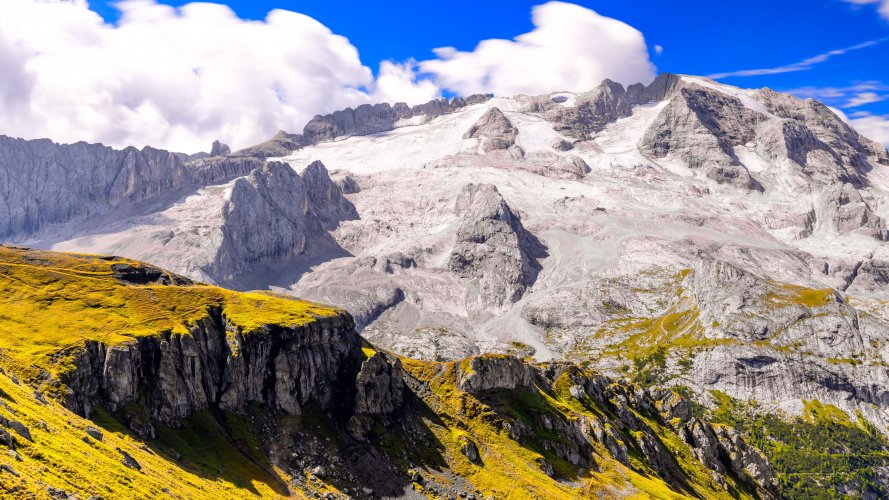Marmolada, the highest mountain in the Dolomites, is at risk of losing its glacier in 15 years due to global warming.
This was reported by Euronews.
The glacier of the “Queen of the Dolomites,” as this mountain is called in Italy, is rapidly disappearing. Scientists say that over the past 5 years, its surface area has decreased by 70 hectares, which is equivalent to 98 football fields.
According to scientists, the Marmolada glacier is losing 7 to 10 cm of thickness per day and risks completely melting by 2040. Since the beginning of scientific measurements in 1888, its ice cap has receded by 1200 meters, its area has decreased by more than 80%, and its volume by more than 94%.

The organizers of the campaign launched by the environmental group Legambiente, the International Commission for the Protection of the Alps, Cipra and the Italian Glacier Committee sound the alarm.
"The Marmolada Glacier is dying, and covering it with sheets is a curative tactic with the sole purpose of protecting the ski slopes," Legambiente representative said at the press conference, adding that the ice cap is now in an "irreversible coma."
Two years ago, EcoPolitic reported about a tragedy on Marmolada, when a part of the mountain glacier collapsed against the background of record hot temperatures, as a result of which at least 6 people died and 8 were injured. The ice fell on a tourist route. On July 2, on the eve of the collapse, the temperature on the mountain reached 10 degrees.
We also wrote about what Venezuela lost irretrievably all its glaciers.





